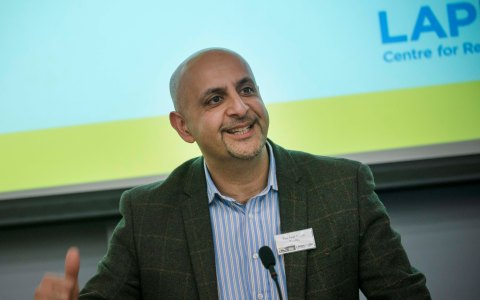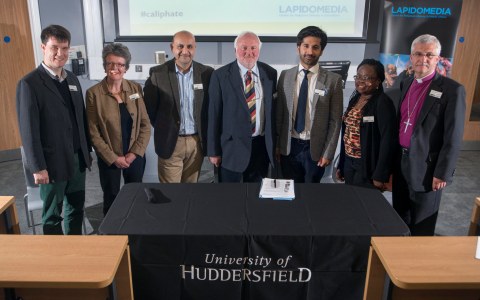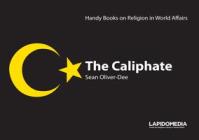'Islamic State are Muslims and their doctrine is Islamic’: BBC Head of Religion
by - 1st June 2016

THE ISLAMIC State are Muslims and their doctrine is Islamic, the BBC’s Head of Religion, told a Lapido event last Wednesday (25 May).
Professor Aaqil Ahmed, first Muslim to hold the prestigious top religion post at the nation’s broadcaster, was responding to criticism of the BBC’s use of the term ‘so-called Islamic State’.
‘You wouldn’t say “so-called Huddersfield University”, barrister Neil Addison said during questions to the panel.
In reply, Ahmed said: ‘I hear so many people say ISIS has nothing to do with Islam – of course it has.
‘They are not preaching Judaism. It might be wrong but what they are saying is an ideology based on some form of Islamic doctrine. They are Muslims.
‘That is a fact and we have to get our head around some very uncomfortable things.
‘That is where the difficulty comes in for many journalists because the vast majority of Muslims won’t agree with them [ISIS].’

The discussion, in the presence of the suffragan Bishop of Huddersfield, Rt Revd Jonathan Gibbs, was part of an event organized by Lapido and hosted by Huddersfield University’s Media Department to launch the charity’s media handbook The Caliphate in the north of the country.
Ahmed described it as ‘a great entry-level read.’
Redemption
Veteran journalist Paul Vallely, former Associate Editor of the Independent who chaired the panel agreed, saying ‘We need to open trainees’ eyes.’
He added: ‘Religion is not on the way out, it is on the way in - in a big way.’

Vallely, who is now Visiting Professor in Public Ethics and Media at the University of Chester poured scorn on his own generation of reporters, and said their attitude to religion was ‘beyond redemption’.
‘Many journalists believe religion is something of the past. One example is the story of human rights activist James Maudsley. He was arrested in Burma protesting about human rights. He was finally released and immediately went back and was arrested again. In the Independent news conference everyone liked the story until someone said “He’s a Christian …” Then everyone shrugged and we moved on to the next topic. That is the background of religion in the news.’
Dr Mercy Ette, a specialist in Boko Haram and BA course leader in journalism at Huddersfield University, cited the Northern Nigerian terror group as a good example of where journalists had tried to simplify a very complex subject.
‘It was only when they bombed the UN building that they became front-page news. It was covered by everyone and people started taking the group seriously, not just in Nigeria but beyond.
‘But many of the journalists did not know anything about the group – so Boko Haram became “the Taliban of Nigeria”.
‘It makes sense to use terms the audience understands – but those phrases are loaded with symbolism and they are not neutral.
‘Being literate about religion is critical if journalists are to write intelligently about crucial issues. We live in a world that is very diverse on issues to do with religion and unless our journalists understand the issues, then all they will talk will be the versions they know,’ she added.
She praised The Caliphate for ‘explaining concepts that are often bandied around – we cannot properly tell the stories without understanding the basics.’
Dr Afshin Shahi, an Iranian-background scholar and founder of Britain’s first Centre for the Study of Political Islam – at Bradford University – said the number of people who counted themselves as having faith was increasing.
‘Religion is here to stay. It has political and social consequences and that is why our journalists have to understand it.’
He said reducing the beliefs of 1.2 billion Muslims to a very strict definition was ‘one of the greatest dangers we face when it comes to understanding Islam’.
He also praised the book as ‘interesting and informative’. ‘I was pleased to see that it is made clear at the beginning that the idea of the caliphate throughout Muslim history was subject to different interpretations.
‘I think the book is very factually rich. It could function as a very good frame of reference. Even as someone who has done years and years of research I did find some interesting facts that I did not know myself.’
 The Caliphate by Sean Oliver-Dee is available on Kindle price £6.52 or in paperback.
The Caliphate by Sean Oliver-Dee is available on Kindle price £6.52 or in paperback.
